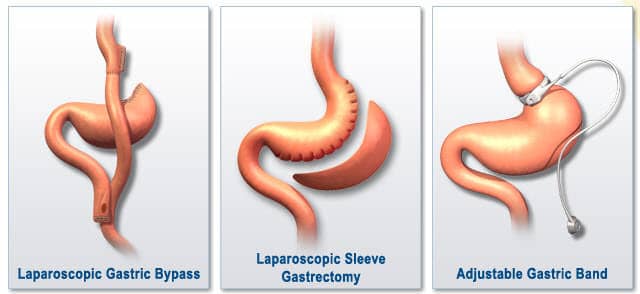
One of the most popular risk factors for disease is being overweight. Obesity is a medical condition that can impact your self-esteem. Fortunately, Dr. Peter K. Hon may recommend bariatric surgery to alter how your stomach digests food. Bariatric surgery reduces the size of your stomach, thus suppressing your hunger by promoting fullness.
The types of bariatric surgery
Your doctor will individualize your weight loss surgery depending on your condition and desired clinical outcomes. The most popular types of bariatric surgery include gastric banding, Roux-en-Y gastric bypass, and sleeve gastrectomy. Bariatric procedures typically involve minimally invasive techniques. However, depending on your condition, your doctor may make larger and deeper cuts.
Lap band surgery involves dividing the stomach into two parts, a larger and a smaller portion. Your doctor will perform this procedure to reduce the time food spends in the stomach.
Gastric bypass involves dividing the stomach into a large and small pouch and linking the small portion directly to the small intestine. You will only need a small part of the small intestine. Your doctor will eliminate a large part of the ileum to limit calorie intake into the tissues in your body.
Sleeve gastrectomy reduces hunger. This procedure targets the hormone responsible for hunger. Your doctor will remove most of your stomach, including the part that creates hunger hormones, thus increasing your fullness to reduce your food intake.
Losing weight following gastric bypass or sleeve gastrectomy will take about two years. Weight loss after lap band surgery takes longer.
Why should you consider weight loss surgery?
Bariatric surgery is the best way to manage severe symptoms associated with your obesity. Your doctor will recommend bariatric surgery if your body mass index is over 40 and you cannot commit to a strict workout routine.
Bariatric surgery will solve any chronic health concerns you have due to your health. For example, you will notice Improvements in your diabetes or heart disease upon beginning bariatric surgery.
However, bariatric surgery is a potential weight loss alternative after conservative approaches have failed to offer desired clinical outcomes. Your doctor will carefully review your lifestyle to determine areas you need help with for effective weight loss. For example, you should begin working out with a fitness trainer and switch your diet to achieve a lower body mass index.
What can you expect after bariatric surgery?
Your doctor will recommend lifestyle changes following your bariatric surgery to improve treatment efficacy. For example, sticking to a low-calorie intake through diet changes can make you lose weight and maintain your results. You may also need to take vitamins and supplements throughout the rest of your life to maintain healthy levels of certain minerals in your body.
You may need to start with solid foods for the initial days following your weight loss surgery before advancing to pureed and solid foods. Contact the offices of Surgical Specialists of NY to get a detailed assessment of your concerns and discuss the best bariatric surgery option, including the risks to determine the appropriateness of the treatment to cause desired weight loss.
